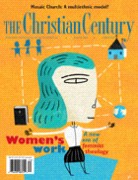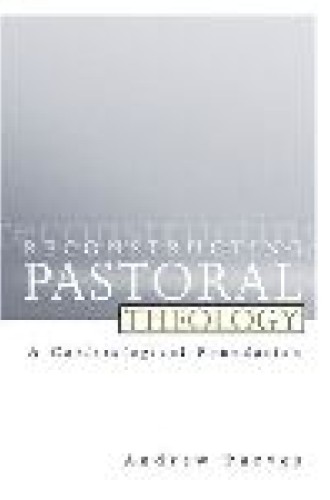Features
Innovation in L.A. Mosaic as a multiniche church: Mosaic as a multiniche church
Scholars and church growth experts have been paying attention to Mosaic Church in Los Angeles, the subject of Gerardo Marti’s book A Mosaic of Believers: Diversity and Innovation in a Multiethnic Church. Marti, professor of sociology at Davidson College in North Carolina, wrote the book after being a participant-observer at Mosaic, a multiethnic church which features innovative, artistic worship. We talked to him about the church and his analysis.
Step aside: The 'former pastor' problem
When I speak in churches across the country, I often hear “former pastor” stories, or stories about struggles that involve a former pastor. What is this “former pastor problem”? Simply put, it refers to pastors who hang around after they are no longer employed by a congregation—and meddle.
Women’s work: Feminist theology for a new generation
War-weary
Steven Spielberg’s War of the Worlds churns up an emulsion of suspense and horror that engulfs you with the gray relentlessness of a low-grade fever. This is not the kind of thrilling, soaring adventure Spielberg created in Jaws or Indiana Jones and the Temple of Doom; it’s a cheerless piece of visceral manipulation.
Fear factor
Steven Spielberg’s War of the Worlds churns up an emulsion of suspense and horror that engulfs you with the gray relentlessness of a low-grade fever. This is not the kind of thrilling, soaring adventure Spielberg created in Jaws or Indiana Jones and the Temple of Doom; it’s a cheerless piece of visceral manipulation.
Books
Reconstructing Pastoral Theology
Life After Death
Multiethnic mix
The key to building a congregation of people from diverse ethnic backgrounds is to appeal to them in ways that trump their differences.
Back to school
A politics of hope
On the Road to Armageddon
Departments
Repenting: Public laws and public actions
Positive influence: The gospel of reward fills a mainline vaccum
Virtues and imposters: Reliable witnesses
Taking risks: In memory of Theodore Gill, Century editor
News
On gays, American Baptists keep 'paradox' Maintaining an open stance: Maintaining an open stance
Century Marks
Malcolm Gladwell, author of the popular book The Tipping Point: How Little Things Can Make a Big Difference, was born in Canada to an English father and a Jamaican mother. He did not look black until he let his hair grow out Afro-style. With the Afro he started getting “stopped and frisked on the streets of America for no other reason than looking like a black American.” This experience of racial profiling was the inspiration for his most recent book, Blink: The Power of Thinking Without Thinking, which delves into the psychology of the “unconscious mental processes we all use to size up a person or a situation with just a few telling details” (Black Issues Book Review, July-August).









